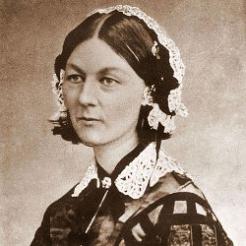Words can be used to excuse the inexcusable, says Robert Ashton, as he reflects on the report into Stafford Hospital.
The exposure last week of the massive shortcomings of Stafford Hospital left many speechless. Reports claiming there were at least 1,200 needless deaths left people angry and shocked. How could ordinary people behave in what appears to have been such an inhuman way?
The Times described how one former patient, who had been in Belsen as a girl, had said that at least in Belsen she'd had friends looking out for her. But how could anyone compare NHS staff in the 21st century with anyone who worked in a concentration camp?
The short answer is that in both Stafford and Belsen, people were simply doing their jobs. Carrying out the tasks described in their job descriptions. Focusing on the objectives against which their performance was being measured. You might say it's a cruel comparison; as a writer, I'd say it's all the result of how words have been used to excuse the seemingly inexcusable.
I was told recently by someone involved with the recruitment of an NHS Acute Trust chairman, that one candidate went through the entire process without once mentioning patients. The candidate who was appointed spoke a lot about patients; they were, he said, at the heart of why the Trust exists. He was of course right. So how could anyone forget this simple and obvious fact?
We use words to communicate. When we want to skirt around the issue, we use euphemisms. These make the message easier to share, but a lot harder to understand. I recently spoke at a conference alongside the MD of a major producer of turkeys. He said that he was in the 'protein market.' Sure turkeys are a valuable source of food protein. But they are also living things entitled to be treated humanely on their short journey from hatchery to killing room hook.
And so it is with the NHS. The complexity of the whole is explained using shortcuts and acronyms. We have pathways along which the patient travels; we have acronyms to describe the various clinical strands. Then we have tariffs, which is the menu of conditions and the fees hospitals earn for treating each. And so it is quite simple to see how keeping expenditure within tariff can result in people being put out on the street before fully recovered.
On BBC 'Any Questions' the other day, Alan Milburn MP described walking into a hospital ward unannounced. He asked the nurse at the desk why she was busy with paperwork when patients were calling for assistance. "The paperwork has to be completed before I go off shift," was her worrying reply. Belsen and Stafford were points along a straight line. Every hospital has the potential to slip into the unacceptable zone.
But words again, particularly long and esoteric ones, can cloud the reality of what really needs to be done. Florence Nightingale, in a letter to a friend wrote: "You ask me why I do not write something; I think one's feelings waste themselves in words, they ought all to be distilled into actions and actions which bring results". How right she was, and how it is that more than 100 years after she wrote them, we have yet to fully heed her advice.









